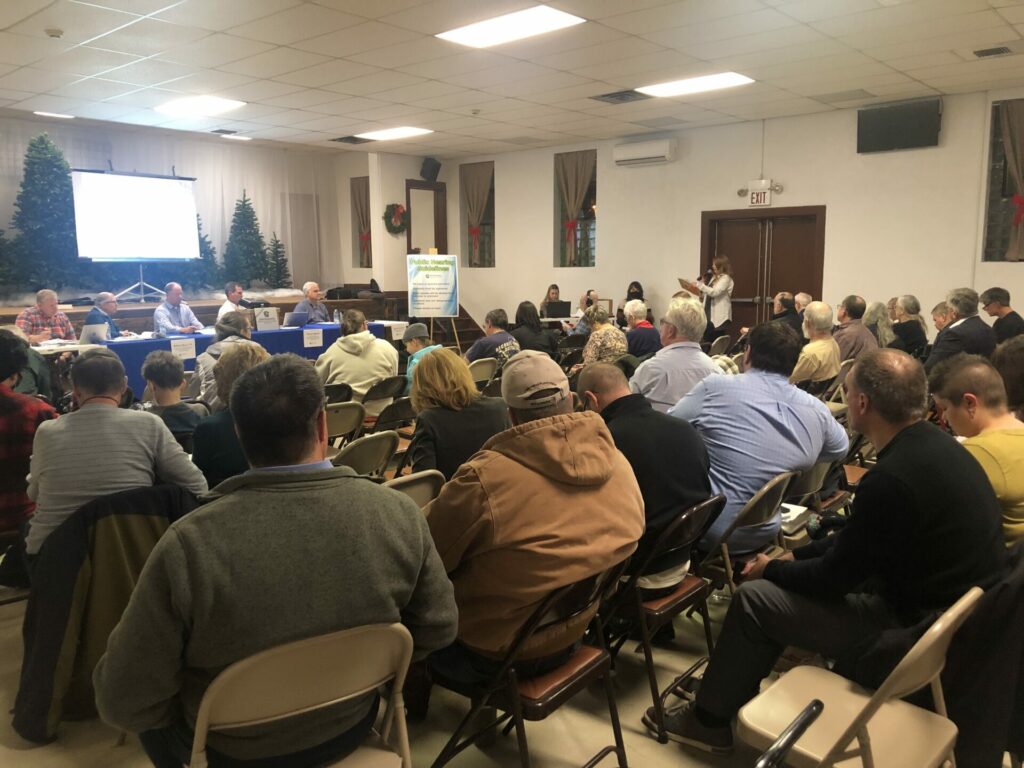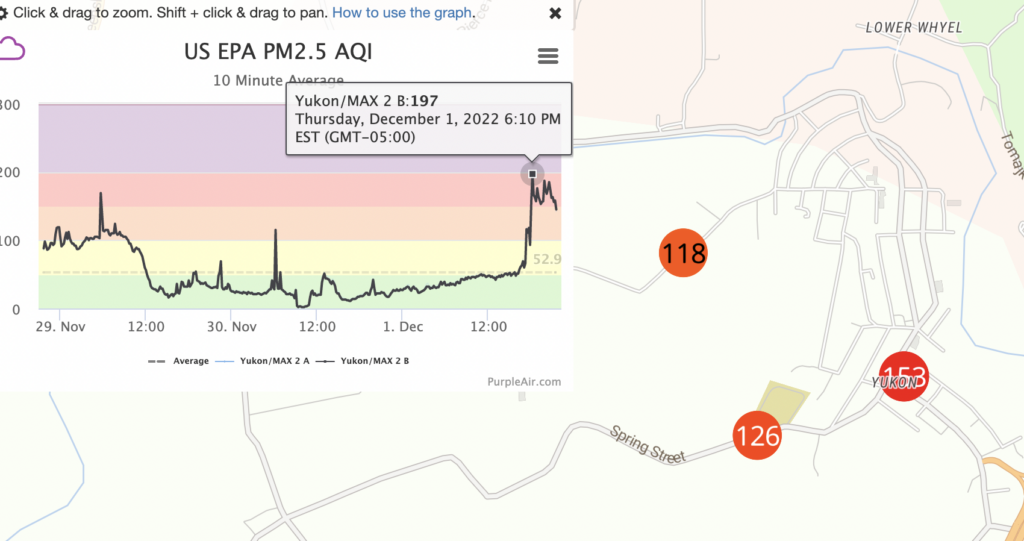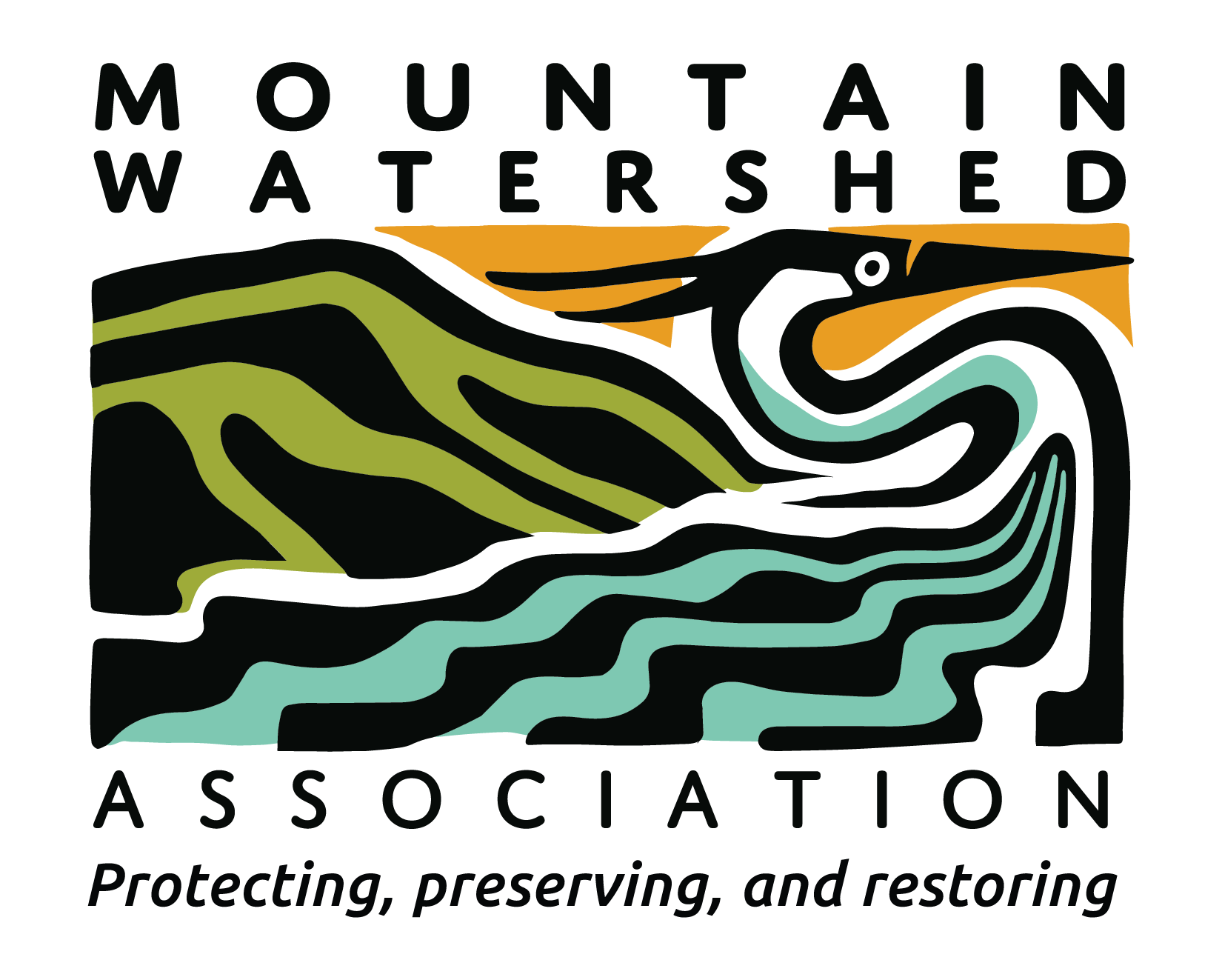MAX Environmental, the hazardous waste landfill overlooking Yukon PA, wants to get bigger. To extend profits, it needs to expand as its existing landfills reach capacity. So the company has filed for expansion permits—Landfill No. 7—right along Sewickley Creek. The first public hearing for this process took place on Dec. 1st in the heart of Yukon, the Volunteer Fire Department.
Residents began to push back the moment the meeting commenced. More than eighty people from the small town joined in-person, filling seats to show the panel of DEP spokespeople that they wouldn’t accept toxic waste in their backyards. During the Q&A portion of the meeting residents hit on a common theme: Does the DEP know how dangerous this facility will be? Can the DEP regulate a facility like this?
Through these questions, the DEP revealed that it had never, in its history, permitted a landfill like the proposed No. 7, as MAX Environmental is the only RCRA Class-C hazardous waste landfill in the state. The existing facility operated by MAX has had ongoing issues. Open burning, hazardous waste leaks, uncontrolled dust emissions, and a failure to properly report chemical spills are a few of the dangerous lapses MAX has allowed. The site has more than 300 violations of their permits.

The people of Yukon are concerned, and they are not alone. Many drove to speak from the downstream town of West Newton. If a flooding event occurs over the new landfill, any escaped contaminants would travel Sewickley Creek into the Youghiogheny River to West Newton. There is reason to fear such an outcome: the location of No. 7 is close enough to Sewickley that in 2019, FEMA considered the area to be a 100-year floodplain, meaning a flood risk of 1% each year. This designation was changed at MAX Environmental’s petitioning. Residents brought up the unprecedented flooding seen across the country this year, including in nearby regions.
During the formal comment period, Yukon residents shared personal stories about health impacts from the toxic contents of the plant up on the hill, and how it reaches them in their homes. In their experience, dust blows off the hill and settles over the town. Rain runs down the landfill in cracks, finding its way over MAX’s property line onto private land. Smoke from burning wafts enters homes and businesses through windows. Nearly all the accounts of ongoing emissions could be matched to a description of a violation from the past, indicating MAX has been caught by DEP at specific times, but may be violating far more often than the enforcement agency can detect through inspections.
Health effects reported by nearby residents to MAX could fill a book. That night, neighbors described “inside days” for their children when air quality deteriorates. They described temporary ailments including headaches, nosebleeds, and ulcers. Graver yet, a string of cancer-related deaths has left many homes unoccupied, and some cancer survivors suspect their condition originated from MAX. The heavy testimony continued with examples including multiple consecutive miscarriages, chemical-borne illnesses, and pets dying in clusters after rainfall washed over the facility into a residential lawn.

Going forward, comments can be sent to the DEP at RA-EPHWMAXYUKONLF7@pa.gov. However, Mountain Watershed Association believes more should be done to collect thoughts and concerns from residents of Yukon and beyond. As the public hearing took place on the same day as the informational session, MWA hopes the DEP will consider a second virtual or hybrid hearing to capture the voices of those who could not attend the in-person session on Dec. 1. Holding one public hearing is the minimum requirement, and the minimum public input is not enough for the only RCRA Class-C Hazardous Waste Landfill in the state. Sign-on to this petition asking the DEP to hold an additional public hearing.

